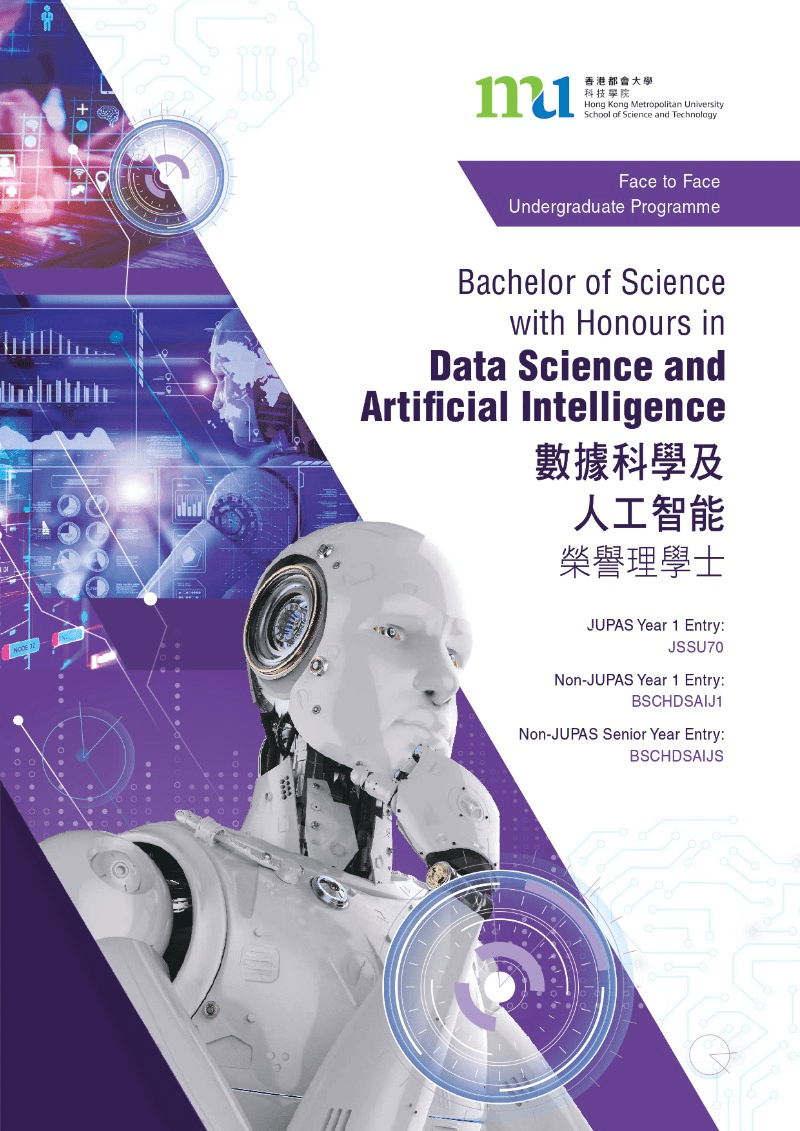Core Courses: Provide training in some of the major pillars in modern computing: processing of information, networking of information, and management of information.
Include programming, software development, software engineering, computing infrastructure, and databases.
| Code | Title | Credits | Course Level | Honours Classification |
|---|
| MATH 1410SEF | Algebra and Calculus | 3 | Foundation | – |
This course teaches fundamental concepts in calculus and linear algebra. The course aims to provide a transition between school and university mathematics. The course also aims to develop in students understanding the concepts and techniques of differentiation, integration, vectors and matrix operations. |
| Code | Title | Credits | Course Level | Honours Classification |
|---|
| STAT 1510SEF | Probability & Distributions | 3 | Foundation | – |
This course is intended to provide conceptual understandings of Probability & Distributions. Probability & Distributions has wide applications to diverse areas in statistics. |
| Code | Title | Credits | Course Level | Honours Classification |
|---|
| COMP 2020SEF | Java Programming Fundamentals | 3 | Middle | – |
Java is one of the most popular languages in the IT professional world. The aim of this course is to provide students with sound foundation in software development using the object-oriented programming language Java. The course will cover fundamental object-oriented programming concepts such as classes and objects, and the structure of text-based Java applications. Students will study how to analyze problems and apply object-oriented methodology in software development. |
| Code | Title | Credits | Course Level | Honours Classification |
|---|
| COMP 2030SEF | Intermediate Java Programming and User Interface Design | 3 | Middle | – |
This course aims to provide students with more knowledge in Java programming as well as an introduction to user interface design. Students will study how to design computer user interface, and develop graphical-based computer programs using the Java programming language. Students will also study how to analyse more difficult problems and apply object-oriented methodology in development. |
| Code | Title | Credits | Course Level | Honours Classification |
|---|
| COMP 2080SEF | Introduction to Computer Programming | 3 | Middle | – |
This is intended to be a first course in computer programming. In this course, students will study how to write computer programs in the Python language to solve simple computing problems. Students will use fundamental programming and data containers to ease programming effort and to allow writing larger programs to solve problems. Topics include variables, operators, control structures, arrays and strings. |
| Code | Title | Credits | Course Level | Honours Classification |
|---|
| COMP 2090SEF | Data Structures, Algorithms, and Problem Solving | 3 | Middle | – |
As a sequel to COMPS208F, the aim of this course is to facilitate students to acquire skills for writing larger programs effectively. Students will study how program structures, software development process, data structures, and algorithms can be used to deal with larger programming tasks. Topics include modular programming, abstract data types, searching and sorting, recursion, and data structures such as linked lists, binary trees, and hash-tables. |
| Code | Title | Credits | Course Level | Honours Classification |
|---|
| COMP 2640SEF | Discrete Mathematics | 3 | Middle | – |
The aim of this course is to lay the foundation of discrete mathematics of students which will be used in studying other more advanced programming courses. Students will study the concepts of discrete mathematics, using different techniques for analysing and solving discrete mathematical problems. Topics include sets, functions, equivalence and induction. |
| Code | Title | Credits | Course Level | Honours Classification |
|---|
| STAT 2510SEF | Statistical Data Analysis | 3 | Middle | – |
| |
| Code | Title | Credits | Course Level | Honours Classification |
|---|
| STAT 2610SEF | Data Analytics with Applications | 3 | Middle | – |
| This course aims to introduce a range of topics and concepts related to the data science process. Students will learn what Data Science is and the skill sets needed to be a data scientist, how to use R to carry out basic statistical modeling and analysis. Students will also learn the significance of exploratory data analysis (EDA) in data science, the Data Science Process and how its components interact. |
| Code | Title | Credits | Course Level | Honours Classification |
|---|
| STAT 2630SEF | Big Data Analytics with Applications | 3 | Middle | – |
| |














